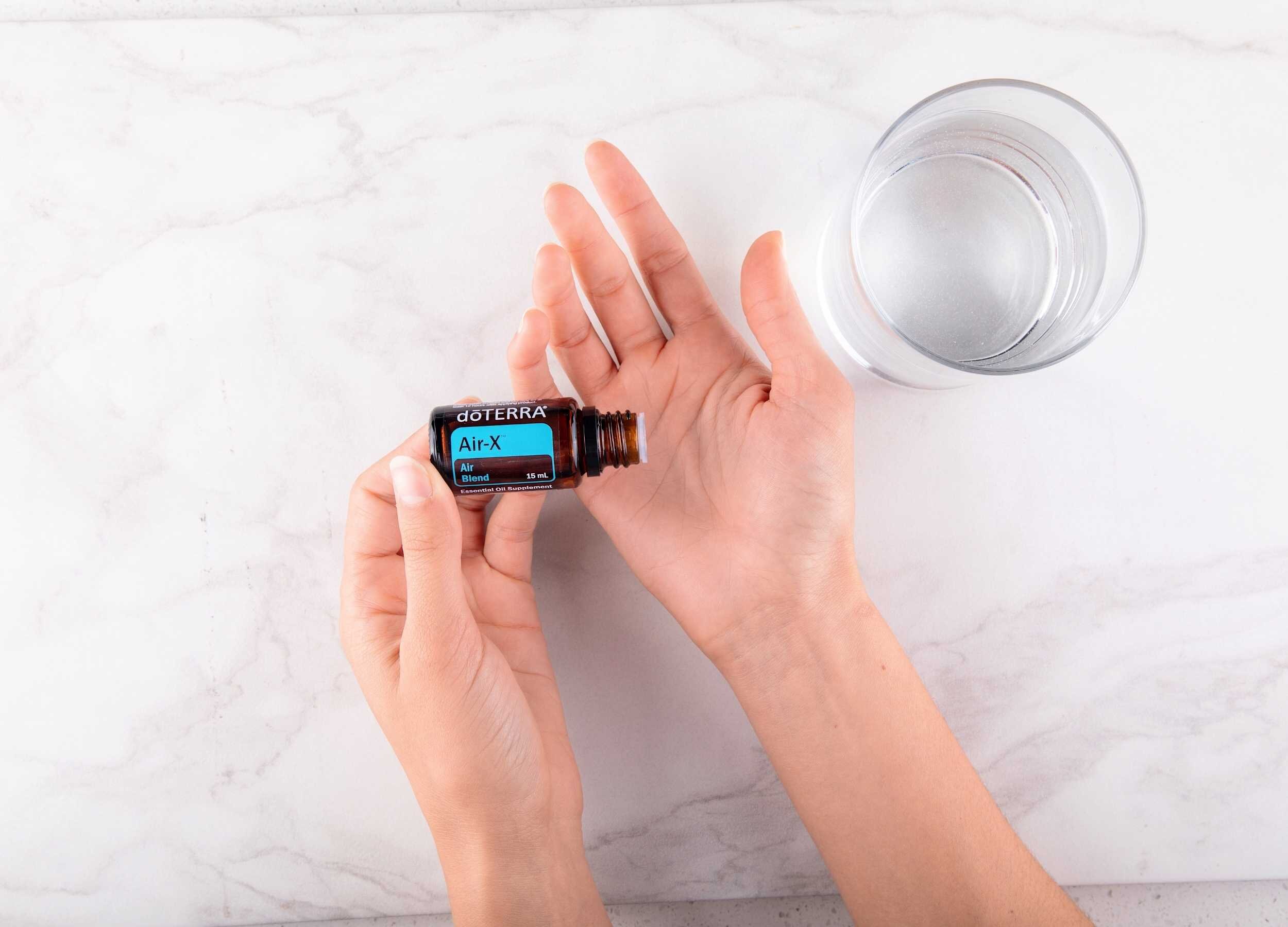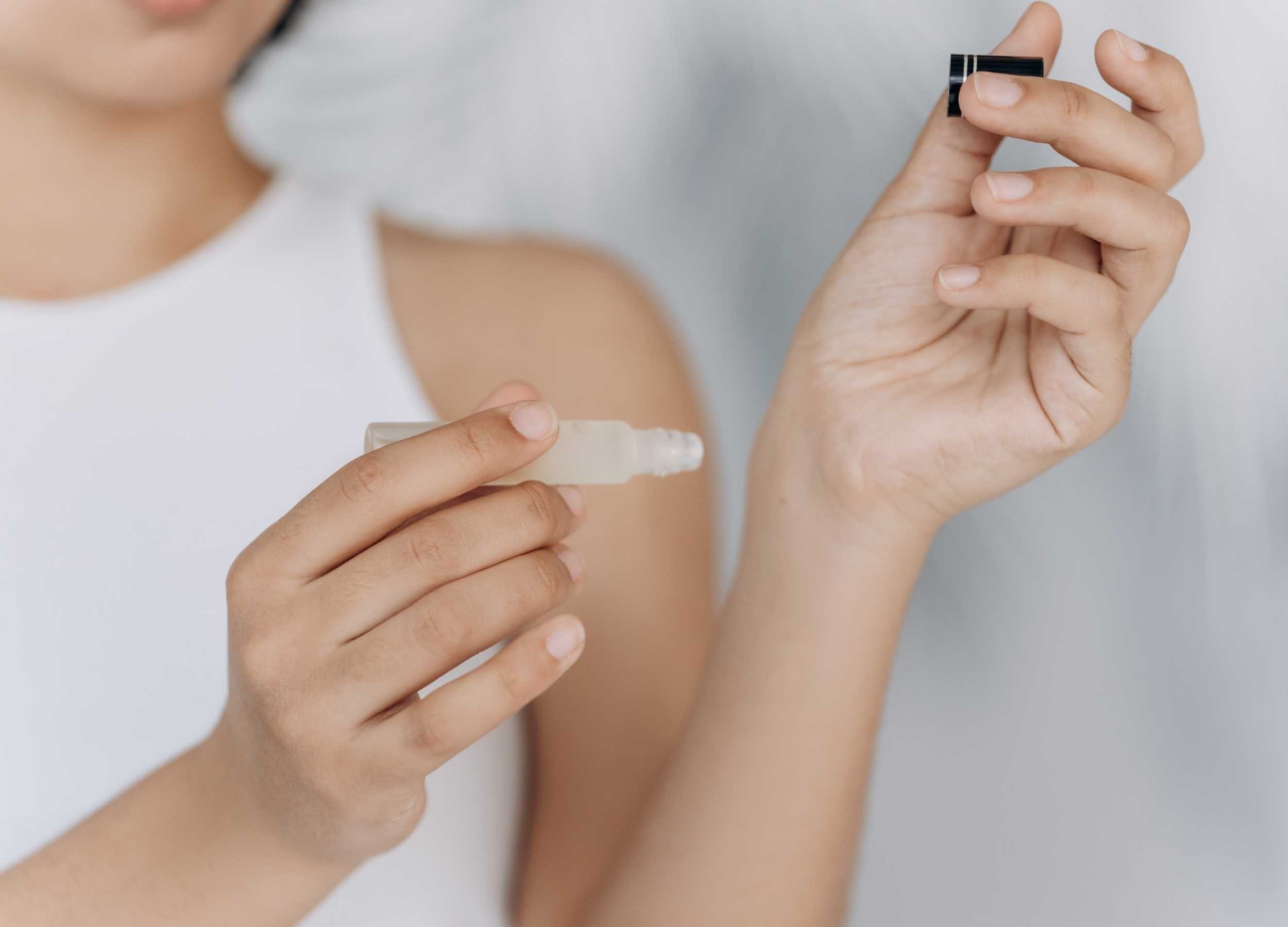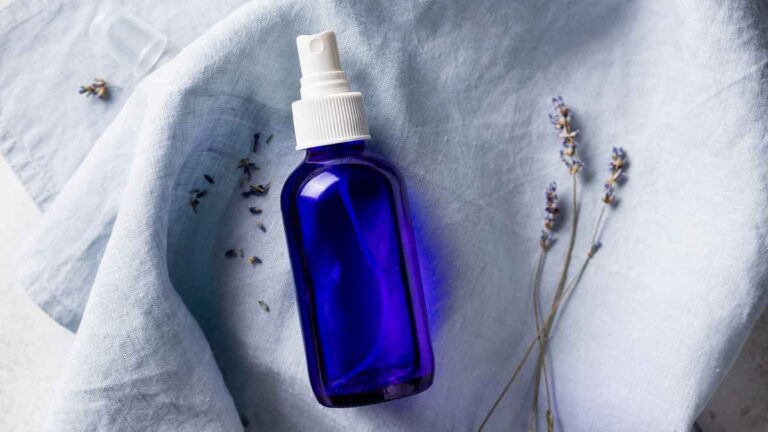doTERRA or Young Living: Why as an Aromatherapist I Do NOT Use Either

I often get asked why I don’t offer doTERRA or Young Living essential oils.
So I wanted to compile in this blog post the reasons why including resources and references.
doTERRA and Young Living independent sales representatives (aka that friend that sells their oils) post about the essential oils everywhere. They now consider themselves to be experts when it comes to all things essential oils. Oh, and always willing to send you a sample.
But are these companies you want to purchase your essential oils from and, most importantly, take their essential oils advice? Do they have the proper training (outside of the companies they are selling) to provide safe essential oil use?
Please keep reading to learn why you may want to reconsider some of the advice your well-meaning wellness advocates (or whatever updated name the companies give their independent sales associates) of essential oils may be telling you.
The resources I will share with you are just some of many more references for essential oils. Please continue the conversation by researching Aromatherapy further, such as reading the books that I mention in this blog post and others.
doTERRA vs Young Living
When it comes to the safety of doTERRA vs. Young Living, both companies use unsafe essential oil use practices. Both companies use misleading marketing strategies, and both companies are multi-level marketing companies. They are similar in their sales strategies, which makes sense considering that doTERRA was started by former Young Living employees.
When I’m asked if I like doTERRA vs. Young Living, my answer is none.
Misleading Marketing Practices
doTERRA uses the term “certified pure therapeutic grade” in their marketing. Well, it’s precisely only that – marketing.
There aren’t any certified essential oils because there isn’t any recognized organization or agency that certifies essential oils. So, doTERRA coined the term, put it on their bottles, and trademarked (see the TM after the logo above) the term.
What does it mean? Nothing, as their oils are not certified. Instead, they use the term to let others know that they test their oils (like nearly all essential oils providers do).
But, it makes for good marketing. Unfortunately, doTERRA sales reps (called “consultants”) misunderstand this because the oils are certified.

From doTERRA’s website:
CPTG Certified Pure Therapeutic Grade is a registered trademark of dōTERRA Holdings, LLC, representing internal quality assessment standards and material control. The CPTG protocol is not administered by government or industry regulatory agencies and does not imply regulatory approval of dōTERRA products.
An impressive and informative article about this topic is “The ‘Therapeutic Grade’ Essential Oils Disinformation Campaign.” by Cropwatch Organization.
Potential essential oil buyers should independently check out the marketing information provided by essential oil traders – do not be put off asking for any extra information or reassurances that you are legally entitled to if the situation is not clear-cut. The professional aromatherapist must provide all relevant safety information relevant to their clients’ treatment(s). Therefore It is part of ‘due diligence to ask questions, require any stipulated proofs, request an MSDS, ask for compositional data & certificate of origin of the batch of oil purchased, and have their eyes wide open to marketing ploys & scams of all types – including providing GC’MS print-outs and other information which relate to different batches of oils entirely, and, of course, describing essential oils as ‘therapeutic grade.
Internal Use of Essential Oils
Consultants of doTERRA are taught to recommend the internal use of essential oils to the general public. However, this contradicts the respected advice and scope of practice recommended by Aromatherapy and Herbal associations, organizations, and health care providers (including both mainstream and alternative medicines).
Essential oils are pretty potent. For example, one drop of essential oil is the equivalent of 25-75 cups of herbal tea of the same plant. doTERRA for example, recommends peppermint oil – “take one drop internally to calm indigestion or upset stomach” in their Introduction to Essential Oil
Essential oils are potent, and there have been reported cases of poisonings and fatality due to the self-dosing of essential oils. Therefore, it is not something to do lightly, as I often see recommended by doTERRA consultants.
The National Association of Holistic Aromatherapy (NAHA) warns –
Some oils are associated with toxicity problems (e.g. a risk of accumulative effects), and so internal use is not entirely hazarding or risk-free.
The International Federation of Aromatherapists Code of Ethics states –
No aromatherapist shall use essential oils for internal ingestion or internal application nor shall any aromatherapist advocate or promote such use of essential oils unless the practicing aromatherapist has medical, naturopathic, herbalist, or similar qualifications and holds an insurance policy that covers explicitly the internal application of essential oils. (IFA code of ethics. Simply Essential, No. 11 December 1993).
Salvatore Battaglia in The Complete Guide to Aromatherapy writes –
Oral administration does have several disadvantages:
-possibility of nausea and vomiting
-irritation of the gastrointestinal tract
-much of the essential oil will be metabolized by the liver
-destruction of the essential oil constituents by stomach acidity or enzymes in the intestines.
In Aromatherapy, herbalism, and alternative medicine health care, it’s common practice that essential oils are not to be taken internally unless under the proper supervision of qualified care providers. (The friend selling essential oils does not meet these criteria.)
Plant Therapy and Starwest Botanicals are my top two places to buy essentail oils.
Essential oils are potent, and there have been reported cases of poisonings and fatality due to the self-dosing of essential oils. Therefore, it is not something to do lightly, as I often see recommended by doTERRA consultants.
The National Association of Holistic Aromatherapy (NAHA) warns –
Some oils are associated with toxicity problems (e.g. a risk of accumulative effects), and so internal use is not entirely hazarding or risk-free.
The International Federation of Aromatherapists Code of Ethics states –
No aromatherapist shall use essential oils for internal ingestion or internal application nor shall any aromatherapist advocate or promote such use of essential oils unless the practicing aromatherapist has medical, naturopathic, herbalist, or similar qualifications and holds an insurance policy that covers explicitly the internal application of essential oils. (IFA code of ethics. Simply Essential, No. 11 December 1993).
Salvatore Battaglia in The Complete Guide to Aromatherapy writes –
Oral administration does have several disadvantages:
-possibility of nausea and vomiting
-irritation of the gastrointestinal tract
-much of the essential oil will be metabolized by the liver
-destruction of the essential oil constituents by stomach acidity or enzymes in the intestines.
In Aromatherapy, herbalism, and alternative medicine health care, it’s common practice that essential oils are not to be taken internally unless under the proper supervision of qualified care providers. (The friend selling essential oils does not meet these criteria.)
There are two major aromatherapy organizations, and both have in the scope of practice and ethics that members do not recommend the use of internal essential oils (to the general public, for example). This advice is in just about every Aromatherapy respected book written by experts in the industry (some of which are quoted in this blog post). And it’s in all of the well-known educational programs for Aromatherapy and herbalism. They agree with each other on this.
However, the only places it differs (not including personal blogs and such) are these multi-level marketing companies like doTERRA and Young Living. They are the ones in the minority when it comes to recommending the internal use of essential oils.

Undiluted (Neat) Use of Essential Oils
My introduction to doTERRA essential oils was through one of their consultants. The names change, but I believe they are now called Wellness Consultants. The consultant rubbed peppermint oil directly on my skin. Almost immediately, I started to get a burning sensation, and she removed the essential oil with vegetable oil and instead rubbed wintergreen oil (also directed and undiluted) to my skin. And yes, it also burned. Not to mention that Wintergreen can be toxic, which of course, she didn’t even know. But, the point is that she used the essential oils on me undiluted.
In doTERRA’s Introduction to Essential Oils almost every oil listed in the manual is recommended to use undiluted. Another brand, Young Living, recommends the use of undiluted essential oils as well.
It’s interesting (as a side note) that doTERRA emerged from a group of professionals that were a part of Young Living.
But, when it comes to dilution – the use of undiluted essential oil is again also not recommended by respected aromatherapy associations, experts, and well-known educators in essential oils.
Because essential oils are so powerful, they should always be used diluted. The recommended correct dilution for topical use is 1% for children (avoid essential oils in newborns) and pregnant women, 2% for adults, and 3% for medicinal use.
While some essential oils are “skin-friendly,” such as lavender and tea tree oil (though I recommend a skin patch test), they are the exception to the rule. Essential oils in general should be properly diluted before use.
Valerie Gennari Cooksley, R.N., Co-founder of Institute of Integrative Aromatherapy writes in her book Aromatherapy Soothing Remedies to Restore, Rejuvenate, and Heal –
Most essential oils you must dilute to use. Essential oils do not exist in nature in large quantities; they are tiny, microscopic droplets, unseen by the naked eye within the plant’s structure in minuscule quantity. So when you embark on your experiential study of nature’s gifts, start by using highly diluted essential oils.
Allison England writes in Aromatherapy and Massage For Mother and Baby –
Essential oils are powerful and need to be diluted before applying directly to the skin. They should always be used either in a carrier oil or mixed with water, some oils such as the citrus oils could cause soreness and irritation.
I hope this helps to educate and clarify what is often seen and incorrectly provided by well-meaning sales reps of multi-level marketing brands of essential oils. While I’ve mentioned doTERRA, this also does apply to Young Living.
The Intention of this Blog Post
I intend to educate and responsibly provide holistic wellness.
As an Aromatherapist and Herbalist working with those in pregnancy, birth and motherhood, it is within my scope of practice and responsibility to provide correct recommendations and education when needed – and absolutely when it comes to safety.
Choosing Oils
I’ve been asked quite often about specific brands and if it’s a good quality essential oil.
I want to share with you how you can know yourself if a brand is a good quality brand by sharing a piece of an article from the East-West School of Herbal and Aromatics Study.
I shop for essential oils in this way and encourage you to consider this as well. However, don’t just pick a few things on this list and think it is an excellent essential oil. Does it fit everything in this list? Does it work at least for the grand majority? This is how you go about choosing a quality essential oil brand.
- who is dedicated to supplying essential oils to the aromatherapy practitioner market and educated public.
- that is on the small size and not a large corporation.
- owned by an aromatherapy practitioner or essential oil specialist
- who has relations with his/her distillers, if possible
- who can readily supply a batch-specific MS/GC spec report on each essential oil it sells
- readily able to provide material safety data sheets (MSDS) as needed
- who has a solid unquestioned noncontroversial reputation in the field
- who has preferably been in the field for a number of years and is well known to other aromatherapy practitioners and/or educators
Resources for Essential Oils Use
I’ve received quite a few post as to WHY not use essential oils undiluted. The risks are irritations and allergic reactions. Here are some articles that I hope will help those that would like to learn more.
Online Recommendations
Book Recommendations
For those who like me prefer books:
- Essential Oil Safety, A Guide for Health Care Professionals by Tisserand and Balance
- Aromatherapy Soothing Remedies to Restore, Rejuvenate and Heal by Valerie Cooksley, RN
- The Complete Guide to Aromatherapy by Salvatore Battaglia
- These are just some of the resources to learn more about essential oils and proper dilution and the reasons why.
INGESTING OILS – another article (click here) filled with even more resources and information about ingesting essential oils. A must-read!
Reporting
Through this post, I’ve received many emails and have people post a bad reaction from essential oils based on the information provided by a sales rep brand. If you are one of these people, please, I can’t urge you enough to report it.
Robert Tisserand, a leader in Aromatherapy often called the Father of Modern Aromatherapy and author of Essential Oil Safety for Aromatherapy Professionals, collects information about these cases. Please email him directly with as much detail as possible at [email protected]. Another place to report is here at the Atlantic Institute of Aromatherapy. Please help others by reporting your experience.






